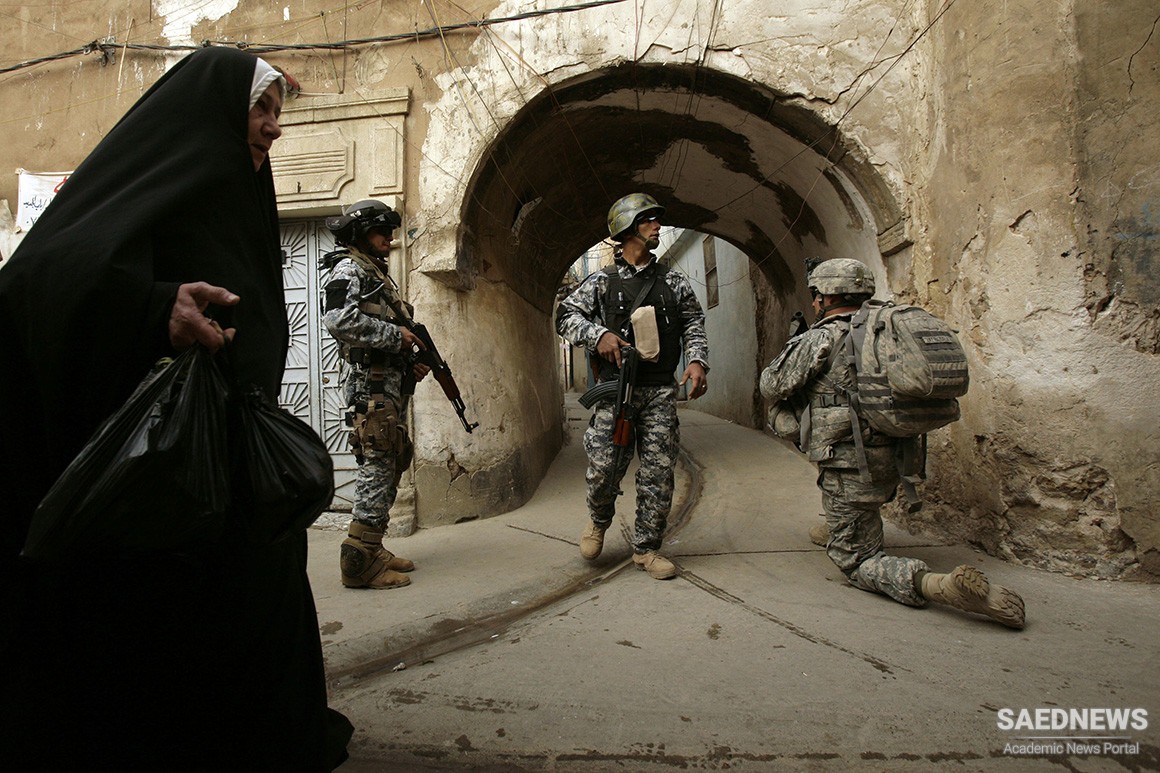In January 2007, despite pressure from critics in Washington to find an exit strategy from Iraq, Bush announced a surge of 30,000 additional troops to crush the insurgency and secure Baghdad, bringing the total number of US soldiers in Iraq to 160,000. In a further indication that a withdrawal was far from the thoughts of the White House, the American Defense Secretary, Robert Gates, announced in May 2007 that the US was looking for a ‘long and enduring presence’ in Iraq under an arrangement with its government. Iraq would not be another Vietnam, he said, with the US forced to leave.
‘The Korea model is one, the security relationship we have with Japan is another’, he said,32 referring to the stationing of US troops in South Korea since the Korean war of the early 1950s, and the establishment of US military bases in Japan since 1945. At about the same time the White House spokesman, Tony Snow, confi rmed that President Bush wanted a permanent troop presence in Iraq. ‘The situation in Iraq, and indeed, the larger war on terror, are things that are going to take a long time.’
As the veteran Middle East commentator Patrick Seale noted: ‘Seen in this light, the US enterprise – for all the talk of democracy – is an unmistakable neo-colonial or imperial project such as the region suffered at the hands of Britain and France in an earlier age.’34 As critics of the invasion had originally claimed, it looked like the occupation was about securing and permanently controlling Iraq and its huge oil reserves, widely believed to be the largest after Saudi Arabia’s.
Control of oil, as Noam Chomsky and others have pointed out, has been the guiding concern of US foreign policy since the Second World War. In 1945, US foreign policy planners recognized that the Gulf’s energy resources were ‘a stupendous source of strategic power, and one of the greatest material prizes in world history’. As Chomsky notes, most of the Gulf’s oil was not needed for US consumption, which was satisfi ed by domestic production and exports from Venezuela.
Control over Gulf energy reserves provides ‘veto power’ over the actions of rivals, as the leading planner George Kennan pointed out half a century ago. Europe and Asia understand [this] very well, and have long been seeking independent access to energy resources. Much of the jockeying for power in the Middle East and Central Asia has to do with these issues. The populations of the region are regarded as incidental, as long as they are passive and obedient.
In September 1978 a Joint Chiefs of Staff memorandum listed three strategic objectives for the US in the Middle East: ‘to assure continuous access to petroleum resources, to prevent an inimical power or combination of powers from establishing hegemony and to assure the survival of Israel as an independent state in a stable relationship with contiguous Arab states’. Kenneth Pollack, President Clinton’s adviser in the National Security Council on policy towards Iraq, has written that these goals ‘have guided US policy ever since’.
Although the ‘inimical power’ was generally presented as the threat of Soviet dominance of the Middle East, the Soviet Union never seriously challenged US control of the region. In 1979, offi cial US estimates assessed the Soviets as infl uencing ‘only 6% of the world population and 5% of the world GNP’ outside its borders.38 Nonetheless, as Samuel Huntington, a Harvard professor and later populariser of the ‘clash of civilisations’ thesis, noted in 1981, ‘selling’ intervention abroad might require creating ‘the misimpression that it is the Soviet Union you are fighting’.
In reality, US planners were more concerned with curbing and crushing any expression of Arab or Iranian nationalism that might inspire Middle Eastern states or their peoples to claim the benefi ts of local resources as their own. ‘The most serious threats [to US power] may emanate from internal changes in the gulf states’, observed a Congressional report in 1977.40 This thinking derived from the familiar ‘Domino Theory’, the idea, as Noam Chomsky has characterised it, that ‘successful independent development and steps towards democracy, out of US control, might well have a domino effect, inspiring others who face similar problems to pursue the same course, thus eroding the global system of [US] domination’.


 Algeria warns of 'Israeli hegemony' over Africa thru Moroccan alliance
Algeria warns of 'Israeli hegemony' over Africa thru Moroccan alliance














































